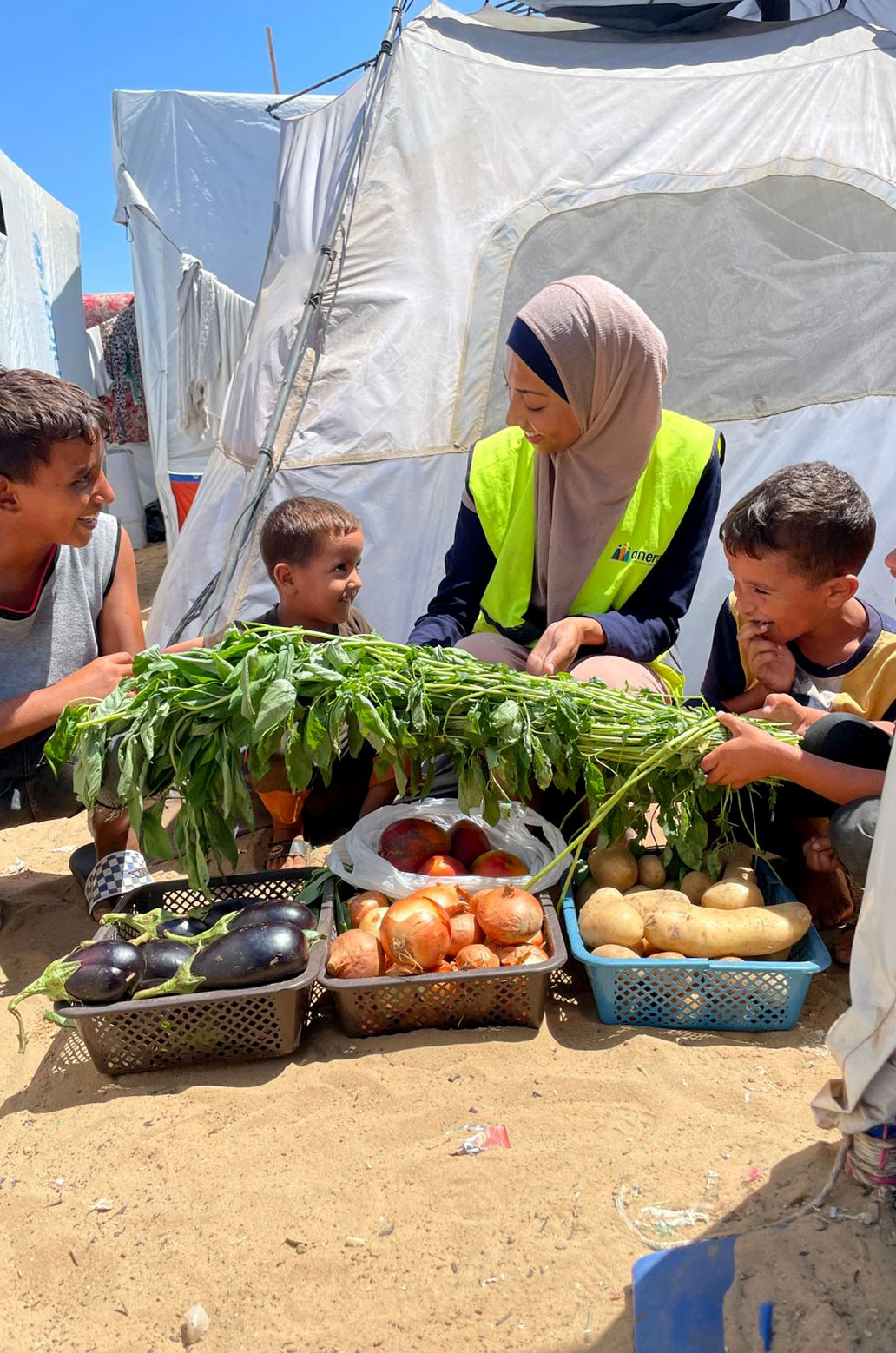War’s Toll on Gaza’s Farms
Posted in: News
Agriculture has always been the backbone of Gaza’s economy, providing a crucial safety net for families that they could always fall back on in times of crisis. Now, just as Gaza families need it most, that safety net is not available. War has cut off families from their lands, left those lands and greenhouses damaged or destroyed.
Starvation is common across Gaza and the situation with the agriculture sector highlights how important sovereignty over food is.
Agriculture in Ruins
The scale of destruction in Gaza’s agricultural sector is staggering. Livestock has been decimated, with no feed allowed into the region. Some farmers have managed to keep a few sheep, but these efforts are limited. The local supply of crops has all but disappeared, and Gaza now relies heavily on what little can be brought in from the West Bank and Israel.
Farmers who once had thriving land now find themselves without irrigation systems, as these have been destroyed along with other vital infrastructure. The main supplier of seedlings for greenhouses has lost all of its stocks. Beekeeping and honey production have been virtually entirely wiped out. Last fall, the olive harvest rotted on the trees. A similar fate awaits the remaining olive crop this year due to widespread devastation.


The North-South Divide in Gaza’s Farmlands
Gaza’s agricultural landscape is divided between the north and the south. The northern areas, particularly Beit Lahia and Beit Hanoun, are traditionally known for their rich agricultural output. These areas were among the first to be hit during the war, and the damage is severe. Only a few farmers are still able to cultivate their land, but they can only do so on a very small scale.
The southern regions of Gaza, such as Rafah and Khan Younis, have a history of large-scale farming. Despite the destruction, these areas are still sources for small quantities of local produce.
From north to south, the agricultural land located on the eastern side of Gaza, from Beit Hanoun to Jabalia in the north to Abasan, Khan Younis and Rafah in the south, is now inaccessible.
And costs have skyrocketed due to the severe shortages. For example, in northern Gaza, one kilogram (~2.2 lbs) of vegetables can cost as much as $100.
No Seeds
Before the war, Gaza’s farmers had reserves of seeds and seedlings. Maintaining seed banks with the genetic variants of crops that thrive locally is vital for the future of agriculture in Gaza, but this task is nearly impossible after the extensive devastation wrought by war.
The destruction of greenhouses along with the imposition of a many years-long blockade have cut off the usual external supply routes. In fact, importing seeds or seedlings into Gaza is not permitted at all.
Despite the dire wartime circumstances, there are some farmers in northern Gaza who have managed to plant small areas with eggplant. They are now waiting to plant tomatoes next month, as the tomato season begins in September.


The Road to Recovery
Although the war in Gaza rages on, all wars must end eventually. Rebuilding Gaza’s agriculture sector will require immense effort and resources. The most urgent needs include water for irrigation, seeds and seedlings. And lands will need to be cleared and made arable again. The situation is further complicated by unexploded ordinances and pollution from chemicals, making land reclamation and rehabilitation a long and arduous process.
As Sami Mater, who heads up Anera’s emergency response efforts in Gaza says: “If we can get these things – water, seeds, and safe land – we can return to building our dream.” The dream of a thriving, self-sufficient agricultural sector in Gaza may be distant, but it is a dream that must be pursued for the sake of Gaza’s future.




OUR BLOG
Related
Last week, Anera lost our colleague and friend, Mahmoud Rassrass. His death, alongside two of his beloved children, by an Israeli drone strike, has left a deep wound in all of us who had the honor to know him, work…
In this log, Anera provides updates on unfolding war in Palestine and our response. In some cases, additional activities may be added retroactively to the daily entries as we receive additional program reporting. Questions? See our FAQ page June 26,…
